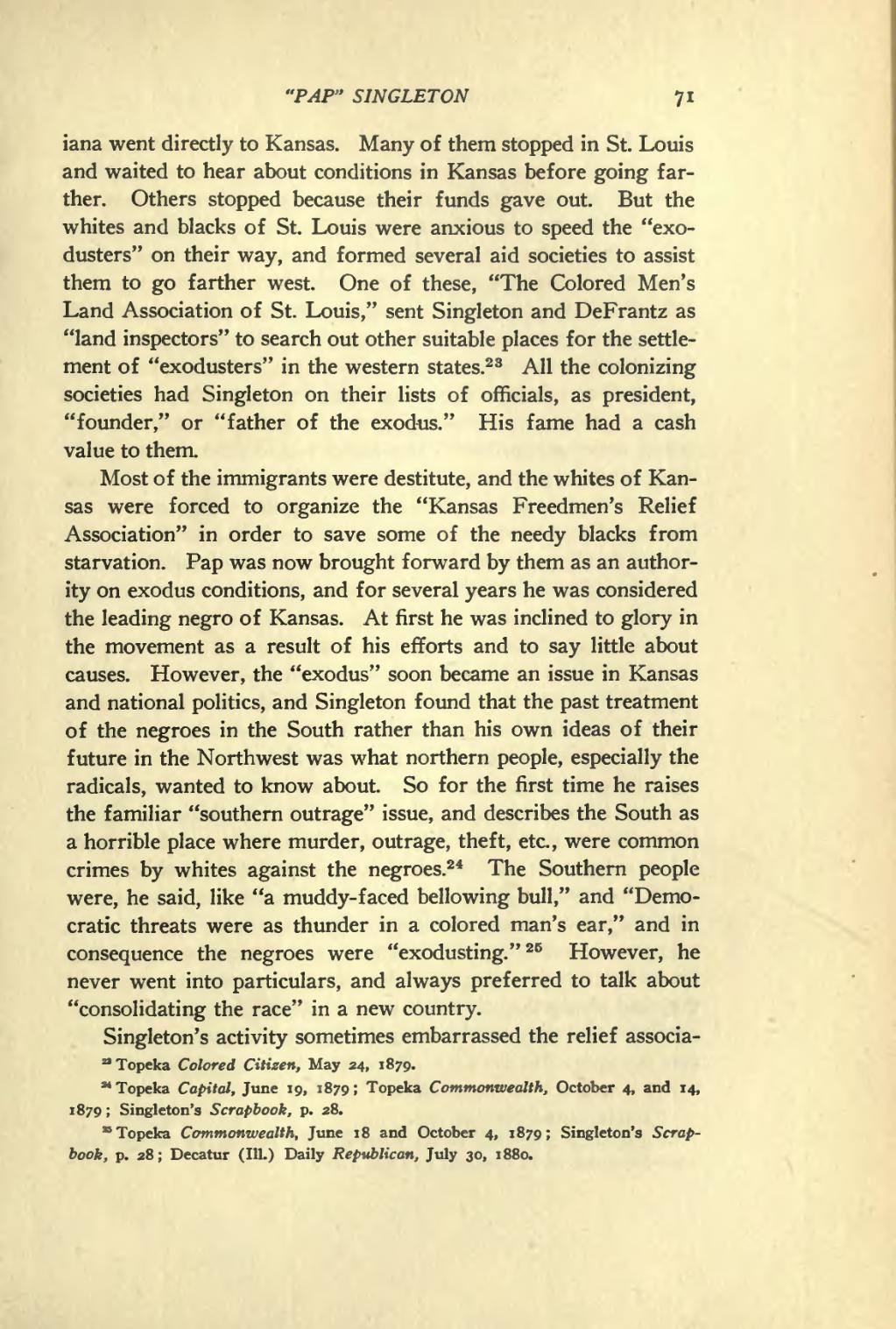"PAP" SINGLETON 7 1
iana went directly to Kansas. Many of them stopped in St. Louis and waited to hear about conditions in Kansas before going far- ther. Others stopped because their funds gave out. But the whites and blacks of St. Louis were anxious to speed the "exo- dusters" on their way, and formed several aid societies to assist them to go farther west. One of these, "The Colored Men's Land Association of St. Louis," sent Singleton and DeFrantz as "land inspectors" to search out other suitable places for the settle- ment of "exodusters" in the western states.^^ All the colonizing societies had Singleton on their lists of officials, as president, "founder," or "father of the exodus." His fame had a cash value to them.
Most of the immigrants were destitute, and the whites of Kan- sas were forced to organize the "Kansas Freedmen's Relief Association" in order to save some of the needy blacks from starvation. Pap was now brought forward by them as an author- ity on exodus conditions, and for several years he was considered the leading negro of Kansas. At first he was inclined to glory in the movement as a result of his efforts and to say little about causes. However, the "exodus" soon became an issue in Kansas and national politics, and Singleton found that the past treatment of the negroes in the South rather than his own ideas of their future in the Northwest was what northern people, especially the radicals, wanted to know about. So for the first time he raises the familiar "southern outrage" issue, and describes the South as a horrible place where murder, outrage, theft, etc., were common crimes by whites against the negroes.^^ The Southern people were, he said, like "a muddy-faced bellowing bull," and "Demo- cratic threats were as thunder in a colored man's ear," and in consequence the negroes were "exodusting." ^^ However, he never went into particulars, and always preferred to talk about "consolidating the race" in a new country.
Singleton's activity sometimes embarrassed the relief associa-
^ Topeka Colored Citizen, May 24, 1879.
" Topeka Capital, June 19, 1879; Topeka Commonwealth, October 4, and 14, 1879 ; Singleton's Scrapbook, p. 28.
- Topeka Commonwealth, June 18 and October 4, 1879; Singleton's Scrap-
book, p. 28 ; Decatur (111.) Daily Republican, July 30, 1880.
